That dress! RT @goldenglobes: From @12yearsaslave @Lupita_Nyongo! http://t.co/deC81EZK4f
Love Lessons: Musiq Soulchild and Tressie Cottom
11 FebWhen I sat down to write the song that came to mind for me was Musiq Soulchild’s Love. I thought about this beautiful ballad because it allows for a much bigger vision of love that includes all manner of relationships including the one we have with ourselves. Soulchild sings…
Love
So many people use your name in vain
Love
Those who have faith in you sometimes go astray
Love
Through all the ups and downs the joys and hurts
Love
For better or worse I still will choose you first
I have been reflecting on the love of my sisters, particularly in feminism. I have been troubled by the fact that many of my sisters have been struggling for a number of reasons, but there are certain hurts that just should not be. A few weeks ago I read a blog by my sister-in-scholarship, Tressie Cottom, super-scholar and new friend who lamented on the lack of love demonstrated when a student at the University of Chicago threatened to circulate a mugshot photo of her in an effort criminalize her, attack her character, and denounce her scholarship, simply because he disagreed with her perspective on the importance of grades in graduate school. REALLY! While for many of you this is old news, I bring this up because I realized that the reason she was even in the Atlanta University Center area near Morehouse College is because she was lost trying to get to me to join my class for a celebration dinner. But instead of weighing in on the ridiculousness that occurred, both Morehouse police for pulling her over and “booking” her and U of C brotha-student lacking basic decency and manners, I want to focus on how love guides much of the work the feminists in my life do regularly.
Sometime Yes! is a powerful statement. I teach a Poverty and Social Justice course at Spelman College and I wanted my students to learn to write in ways that encourage them to enter public discussions now. The five page paper and the research papers have their place, but students should be cultivating their voices as students. With all their access to the interwebs and simple applications I believe they need to work on a little more production and a lot less consumption. I called Tressie because she was highly recommended by another sister scholar to do a workshop on Opinion Editorials for my class. She did not know me. She said, “Yes!” In fact, she said, “Yes!” again in the Fall, and again she has said “Yes!” for this Spring.
On the night she was pulled over I had invited her to have dinner with my class to thank her for sharing her time and talent with us, but she did not show up. I assumed something came up and let it be. I found out through her blog two months later that she was arrested. So here is where the challenge comes in. When my sisters need help all too often too many of them do not call. They say, “I did not want to bother anyone” or “It wasn’t that big a deal.” And it would not have been if someone did not decide to look for ways to tear her down.
Love
So many people use your name in vain
Love
Those who have faith in you sometimes go astray
Love
Through all the ups and downs the joys and hurts
Love
For better or worse I still will choose you first
One of the most important commitments of the Crunk Feminist Collective is self-care. We insist on figuring out ways to care for ourselves and one another. We send care packages to one another and others as we can and we remind each other to take care of ourselves. What we realize is that working in the academy and advancing feminist politics in a broken nation can be toxic and while we don’t want to be negative one of our goals is to “not die” trying to do this work. Too many of our feminist foremothers and forefathers have died too soon trying to do this work. I am thinking of Audre Lorde, June Jordan, and recently Rudolph Byrd. The way that we move forward and “live” is by caring for one another by saying Yes! and sometimes No!, but also by agreeing to engage one another in love. To engage one another in love may mean getting crunk when need be, but it also means sending a lifeline (text, email, phone call, lunch) when you know someone needs it. Instead of getting Crunk online, this time we chose to send life lines to our sister to let her know that while the principles of online engagement are important to figure out, making sure she was okay was our top priority.
I have women in my life right now trying to figure out how to be in community with one another and love sometimes feels like it isn’t enough. I have to believe that “love in struggle” is enough. I love Tressie because she gives of her time and talent because she loves working with young scholars-of-color to develop their voice through their writing. I love Tressie because instead of attacking another scholar she reached out to invite him to participate on a panel to discuss academic engagement and social media. I love the CFC because in this community I am so much more informed about the people and issues I care about, like Tressie’s situation. This time she did not call me, but in this community of love I did get the message and was able to respond.
For me the love lessons are many; brotha Soulchild teaches us that sometime folks ain’t gone act right, Tressie teaches us that we can choose to let love guide our engagement both online and off-line. The love lesson I want to leave you with is this…
Sometimes our folks need our support and love but don’t know how to ask for it or don’t think it is important enough, so we have to tell them regularly that they can call on us. Sometimes people who give love need invitations to be loved back. After scolding Tressie for not calling on me, I let her know that I love her and that next time she has to give me the opportunity to say, “Yes!.”
“Grounded and Ready To Soar”: Notes From the 2013 CFC Retreat
14 JanThe business of our everyday lives (jobs, mothering, aunt-ing, loving and making love, creating and tearing down (oppressions), building and holding up, going in and coming out, taking care of ourselves and others, etc.) has been strenuous over the past 23 months. The CFC has grown exponentially since our March 2010 launch. In 2012 we added 127 new blog posts and our blog had over 1 million views with visitors from 212 countries (thank you!). We have nearly 12,400 likes on Facebook, active Tumblr and Twitter accounts, and our blogs are regularly re-posted on other sites (thank you!). We have attended conferences and symposia, sat on panels together, collaborated on academic work, done speaking engagements and workshops, and generally contributed to and helped shape the conversations that are happening in our online and offline communities–but it has been a long time since the CFs have all gathered together in one space.
With the generous support and assistance of CFC Supporters who contributed to our 2012 Giving Campaign, and a grant from the Media Equity Collaborative we were able to finalize and fund our second retreat for early January 2013 in Blue Ridge, Georgia.
We learned from our first mountain adventure (in 2011) that we should plan to be up the mountain before dark so we planned accordingly. We shopped for groceries a day early, arrived in town sooner than needbe, and “packed light” (E. Badu). Our timeline, while somewhat flexible, indicated that we would meet in Atlanta, at CF Sheri’s house, at 12:30 on Friday afternoon, and plan to be on the road by 2 o’clock. We arrived from various pulse points in our lives, the farthest driving up from Lousiana (by way of Jersey), the farthest flying down from the northeast. Nine CFs were able to attend the retreat: Sheri, Moya, Susana, Eesha, Brittney, Asha, Chanel, Crunkista, and Robin (me). We also had our two beautiful baby girls in tow, CBs Asali and Cori Rain (or as Asali says Co-rane).
Once we were all in the same place we hugged, talked, put on our CFC sweatshirts (thanks Sheri), laughed and shook off the exhaustion of a long week. Only a few of us were meeting for the first time while others reconnected and grinned as we unpacked and repacked cars with car seats, groceries, luggage, supplies, and a drum.
We left Atlanta at 2:15 (only 15 minutes behind schedule), two cars deep and leg-to-leg close as we ventured to north Georgia for our rendezvous. We stopped in a small town on the way (where CF Robin’s risqué t-shirt proclaiming what she doesn’t give a fill in the blank about inspired suspicious looks from the local folk who seemed a little alarmed and a little confused when brown body after brown body emerged from a mini-van and SUV) to break bread at Longhorn. We ate quick meals, taking the time, when it was available, to touch and love on each other, passing our babies back and forth transferring strength to strength and love to love. By the time we got to north Georgia there was some sunlight and light rain to travel with us up the mountain. Mountain miles feel like journeys. The steep turns and narrow roads make for lost time as we waited what seemed like hours to go from a stop sign to a railroad track to the world’s shortest (car length) cover bridge (made of four by fours). A trek up a mountain in near dark conditions is never uneventful, especially when there are cars coming down the mountain as you are going up. Our stop-and-go, mountain curvy ride ended in front of our three story cabin fully equipped with a wrap-around porch, hot tub, and what we knew would be a beautiful view in the morning. We unpacked and the party started. Moya, our resident DJ, put on the Friday night remix and announced, as it played in the background, that the “I Wanna Be Down Remix” by Brandy featuring MC Lyte is her ish… (it was ours too).
We paired off and looked around the house, picked the beds we would sleep in, and ate snacks before congregating in the open living room for official retreat business. Meanwhile Asali and I tagged ourselves crunk feminists with blue post it notes while Sheri wrote out our Saturday Schedule and Crunkista (“the baby whisperer”) and Eesha bonded with Cori Rain. Asha, Chanel, Moya and Susana christened our cuddle couch (the comfortable corner couch we designated for cuddling) while Brittney rebelled, sitting in a single recliner and declaring her intent to avoid the cuddle couch (cc) all weekend. We spread ourselves out, caught our breath, and got our bearings before we gathered in close and did a check-in ritual (breathing deep, saying how we felt in that moment, how we hoped to feel at the end of the weekend, and one thing that our CFs probably didn’t know about us). From our first-night sharing we realized that many of us came to the space emotionally and physically tired. We needed affirmation, recognition, inspiration and sisterlove. We discussed and adapted our agenda, set up an altar (CF Sheri did a reading from Homegrown by bell hooks and Amalia Mesa-Bains about the cultural functions of altars), assigned roles (timekeeping, cooking, cleaning, etc.) and talked about our emotional triggers, pinpointing the ways our relational lenses and communication styles are influenced by our astrological charts. Our commitment, for the weekend, was to discuss concerns and improvements, plan editorial content for the year, and envision the world we want to see (for ourselves, the collective, and the babies).
On Saturday morning we had a hearty breakfast of sweet potato waffles, fritatas, scrambled eggs, turkey sausage, bacon and fruit. We spent the morning reviewing and visioning which included reflecting on the success and growth of the past year (reviewing) and then shifting to how we can create the world we want to see (visioning). We started with a long conversation about the Collective’s values and principles and committed to ensure that the work and outreach we do is continually guided by those beliefs. In particular we decided that we want our work to be inclusive (recognizing the nuances of what that means), to honor the voices and work of our feminist foremothers, to be grounded in the intellectual traditions of black feminist thought, to incorporate self-care and soul-nourishment, to shape conversations, to contribute to our professional and personal development, and to concretely build our audiences and communities. We designed the editorial calendar for 2013, talked about digital literacies (including the launch of the soon-coming website and our forthcoming digital video series) and made intentional plans for self-care and growth over the next year.
Before dinner we drank wine and left over margaritas and then ate homemade pizza, salad, and Susana’s delicious chocolate buttercream cupcakes (also known as Audre Lorde Have Mercy Cake). With a sleeping Asali and Cori Rain we gathered for late night woman talk. Sheri twisted Brittney’s hair, Moya posted pictures from our session and we passed around extra cupcakes and bonded over good wine. We shared secrets and talked about everything from politics and popular culture (Scandal) to feminist sex and our desires for the new year (shouts out to Susana for writing an impromptu ballad, On The Kitchen Table). We talked into the wee hours of the morning (3AM) knowing we had an early check out the next day (8AM alarm).
Sunday morning breakfast was continental and last minute showers, packing, and cleaning swallowed the first few hours of our day. Our only business was to wrap ourselves up in the space we created, flourishing in grown woman and baby girl love and intentionality. We closed out our retreat with a blessing for Cori Rain. We got in a circle, took a collective breath, played some Nina Simone, and serenaded Cori Rain with well wishes and blessings to the brilliant beat of Sheri’s drum. We ended with two final words from each CF, the first to describe how she felt in that moment and the second to describe what she would be taking out into the world from our brief time together. CF Eesha’s final words, which were the final words spoken in the circle, resonated with us all. Her words collectively described how we all felt in that moment and what we would all do when we left each other to face the world. With a self-assured smile and early morning eyes she said, “Grounded. Soaring.” Indeed.
On Azealia Banks and White Gay Cis Male Privilege
10 JanGuest Post by Edward Ndopu

Rapper Azealia Banks
Recently, the media has exploded with news of a Twitter battle between rapper Azealia Banks and gossip blogger Perez Hilton. After Hilton inserted himself in an altercation between Banks and fellow female rapper Angel Haze, taking Haze’s side, Banks denounced him as a “messy faggot”. She then went on to say that she used the word to describe “any male who acts like a female”. Rumours have since abounded that Banks is being dropped from her record label as a result of her speaking out against Hilton. Rather than taking sides, I believe it is most important for us to examine the context within which this media escalation has happened. Instead of writing off Azealia Banks, herself a queer woman, as homophobic, we should instead be exploring the femmephobia and racialized sexism at play in the public’s response to this debacle.
The public spat between Azealia Banks and Perez Hiton must be understood within a larger context, beyond the binary logic of right and wrong. It is profoundly problematic that much of the cultural criticism framing this fiasco is couched in the “two wrongs don’t make a right” argument. This narrative rests on the flawed assumption that wrongful conduct on both sides of a conflict functions on an equal playing field. The lens through which we view wrongful conduct on either side (Azealia Banks vs Perez Hilton) must take into account the overarching power imbalances that frame interpersonal experiences of epistemic violence. We cannot dislocate public figures from their sociopolitical locations. The Azealia Banks/Perez Hilton debacle has absolutely nothing to do with right and everything to do with white gay cis male privilege.
White gay cis men have cultural access to the bodies of black women and black femmes, cultural access that black women and black femmes do not have in relation to white gay cis male bodies. This cultural access allows white gay cis men to caricature black femininities, through mannerisms and voice intonations, as rambunctiously depraved and outlandish. It is a form of ontological mockery that reinforces dehumanizing narratives and racist tropes about black femininities. Perez Hilton, who personifies a homonormative politic, has systematically tapped into the cultural access to which I refer at various points in his career. Indeed, the sassy lexicon he, and so many other upper middle class non-disabled white gay cis men like him, employs rests on the commodification and appropriation of black femme identities. Hilton interjecting himself in a social media dispute between two black women, Azealia Banks and Angel Haze, precipitated the Hilton/Banks altercation, which is emblematic of his (problematic) cultural access.
Because our society subscribes to an insidiously misogynistic sociocultural paradigm, to insult someone, notwithstanding gender, is to invoke the feminine. So what better way for Banks to cut Hilton down to size than to call his masculinity into question? The Banks/Hilton feud had absolutely nothing to do with sexual identity (read: homophobia), but rather, gender power dynamics (read: femmephobia). Azealia calling Perez a “messy faggot” suggests an attempt to assert her status as a no-nonsense, hard ass femcee in a largely masculine of center dominated hip-hop industry. Masculine of center queer men, notwithstanding race, appropriate the word bitch. Very often, they use it pejoratively, and with impunity. They’re seldom called out on the ubiquity of their misguided misogyny. Yet, when it comes to Azealia’s use of the word faggot, she’s quickly characterized as homophobic, reinforcing the dominant narrative that people of color are somehow inherently homophobic, to echo Janet Mock’s recent sentiments. Although Azealia Banks is queer, she is not part of a population that would have this slur used against her. That being said, there are other words that are deeply entrenched manifestations of oppression that go unchecked each and every day. Ironically, many gay men who are up in arms over Azealia’s use of the word faggot are the same men who render femme-identified men invisible and undesirable.
Azealia Banks’ career allegedly hangs in the balance and Perez Hilton’s remains firmly intact. She’s now regarded as the ratchet, violently homophobic black woman. By virtue of his white gay cis male privilege, Hilton did not have to contend with the implications of calling will.i.am a faggot several months ago. This isn’t two wrongs make a right, but rather, one wrong is minimized, and the other, pathologized.
—
Born to a South African freedom fighter mother who fled from the Apartheid regime to Namibia under self-imposed exile, Edward (Eddie) Ndopu is a politically conscious (dis) abled queer femme Afro-politan living in Ottawa, Ontario. Named by the Mail and Guardian Newspaper as one of their Top 200 Young South Africans, he is a social critic, anti-oppression practitioner, consultant, writer and scholar.
Django Unchained and Why Context Matters
6 JanSome spoilers ahead, but mostly I’m just feeling all my feelings…
Growing up, I had to deal with my mother’s love for Westerns. I can’t tell you how many times I’ve seen The Outlaw Josie Wales. One of the many joys of expanded basic cable (besides the Cooking Channel, of course) is that I get Encore Westerns. Between that and reruns of Walker, Texas Ranger, I know that when my mama comes to visit she will be thoroughly entertained.
I don’t get her love for the genre. I mean, I get it on one level. I know my mother appreciates a good revenge tale and she likes it when the bad guys grovel at the end. But Westerns? Really? Then again, I unapologetically look forward to watching The Real Housewives of Atlanta and all the iterations of Love and Hip Hop, so who am I to judge? We all hold contradictions, not to mention shamtastic and raggedy entertainment choices.
So, when I saw that Django was coming out during the holidays, I thought this would be something that we could watch together. I mean, I do “enjoy” an episode of Walker, Texas Ranger now and again but I’m not sure that that counts. Django would definitely give us both something to talk about.
I did have some apprehension about watching Django, though. For one, I am not a fan of Tarantino at all. At all. Generally, I find his work contrived, overly self-conscious, and, frankly, boring. Plus, to me he’s like the worst kind of hipster racist, a grown up version of Justin Timberlake desperately trying to affirm his black card at all times, while thoroughly proving himself to be white as hell. The living worst.
But, I was still intrigued by the movie. As a scholar of African American literature, I’m always interested in how we understand and talk about slavery today. Besides, I love Kerry Washington with a fiery burning passion and would watch her read the phonebook. (Too bad she had like five lines in the movie. She did have that lip quiver though. Can’t forget about the lip quiver).
I ended up watching the movie and it exceeded my admittedly low expectations. I won’t do a formal review here, largely because I think the film has been discussed elsewhere in brilliant ways and who needs to reinvent the wheel? (On that note, check out discussions of the film by Salamishah Tillet and The Feminist Wire if you haven’t already). What I do want to talk a bit about was my movie going experience.
I decided against seeing Django while I was spending the holidays at home in Fort Lauderdale. I anticipated that my little heart couldn’t take it. I imagined some irreverent scene involving slavery and being in a movie theatre filled the laughter of whites who, in their next breath, wouldn’t hesitate to remind me of how postracial we are and how Tarantino has every right to create art as he pleases and how brilliant he is and on and on and on. I figured I might have a slavery flashback and go Nat Turner up in there and that’s not how I’m trying to go out, folks.
Instead of that unfortunate scenario, Mama and I headed to the movies in Atlanta on a Friday afternoon. Since my mother is a stickler for time we got there early and I did a lot of people watching as the theatre filled to capacity. Our fellow viewers were Black—pretty much everyone as far as I could see—and largely grown. I’d say middle-aged and older. There were couples on dates. Clusters of homegirls and homeboys. Church sisters and ladies who lunch. Not the crowd that generally thinks Reservoir Dogs is awesome, interestingly enough.
I immediately felt at ease. I felt like I was at a family reunion where something dubious was about to happen but that, nevertheless, it was going to be ok because my auntie and my mama were there. Weird, perhaps, but true.
So we all sat there in companionable (semi) silence, watching Tarantino’s comedic spaghetti Western slavery action-comedy, cheering when racist slaveholders came to their timely and explosively bloody ends, sighing in satisfaction when Django finally got his girl, and laughing out loud at the absurdly funny scenes involving shit that is generally not funny at all.
Take for instance a scene involving some night riders (aka the forefathers of the KKK). The group arrives to kill Django and his white companion but before they can get to the lynching, there’s a whole discussion about how their outfits (namely the poorly shaped eyeholes on their white hoods) are getting in the way of their appointed task. It goes without saying that lynching is not funny. I mean, really. But laughter reverberated throughout the theater. Not uncomfortable, tinny laughter that rings hollow and dies quickly in your throat. But genuine “people can be so damn foolish,” “you got to laugh to keep from crying” and “ain’t this some shit?” laughter thundered, yes, thundered throughout the theater. I don’t know that I could have laughed during this moment in another theater, but I laughed heartily on that day.
When the movie was over I asked my mom what she thought about it. She said she loved it. She loved that Django went about avenging people for his wife and that all the bad people got killed, especially Samuel L. Jackson’s old Uncle Ben looking ass. For her, it was the best kind of Western. When we went out to dinner that evening she expressed several times how satisfying it was to watch racists get cut down. I could only agree.
So, what’s my verdict on Django? It’s interesting, frustrating, (at times) funny, violent, limiting, problematic, thought provoking…it’s doing a whole lot. I don’t regret seeing it, but it’s not in my top 10 list either. I think it is inciting interesting discussion, but I’m not naïve enough to think that this will necessarily translate to a bunch of nuanced portrayals of Black folk in slavery. What I do know is that my viewing experience was connected to where I saw the movie as much as it was connected to the film’s content and that, among other things, underscores my general ambivalence about the movie.
Have you seen Django? What are your thoughts on the film?
A Theory of Violence: In Honor of Kasandra, CeCe, Victoria, Savita and Anonymous
4 Jan**trigger warning**
A few weeks ago, a young Indian woman went to the movies. On her way home she took a bus on which she was raped and brutally assaulted by six men. We don’t know the name of this 23-year-old student. We do know that she was tortured so badly that she lost her intestines and needed numerous operations. Six people – including the bus driver – have been arrested. On Friday, December 28 she died.
I don’t know her name. I don’t have an adequate response, but I feel I should say something. Because I was born in the city where she were assaulted. Because so many, too many, experience such violence. Because I spend most of my waking hours thinking about how we can create a world where women are safe. Because she wanted to live.
●●●
This is both about and not about men. Here are some statistical knowables, true across most societies (just take a look at the extant research at both the global and national levels).
- Violence against women and girls occurs primarily at the hands of men and boys.
- Violence against men and boys occurs primarily at the hands of other men and boys.
- Nations, statistically speaking, commit far and away, the most of the world’s violence via war and conflict. This involves military forces comprised largely of men and boys, who are both perpetrators and victims of this violence.
Gender, then, rises up as an undeniably important variable in regards to understanding violence. And though we might not have a shared understanding of this fact, sex and gender are different and there are more genders than two. Further, people who are gender-non-coforming, genderqueer, trans and/or those who complicate the gender binary experience violence at disproportionate rates.
In my work at Men Stopping Violence, our focus is on ending male violence against women. Far and away the most common first response to my explanation of our work goes something like this: “Yes, violence against women is a problem but, don’t women ALSO commit violence?”
Let me answer that question now: Sure, yes. Women are also perpetrators of violence. As are people of all genders, sexes and sexual orientations. But to refocus the question on women’s violence is to obfuscate the real problem. And that problem is violent masculinity. If all the above data has not convinced you yet, please note: According to the National Academy of Sciences, in the US, “Male criminal participation in serious crimes at any age greatly exceeds that of females, regardless of source of data, crime type, level of involvement, or measure of participation.” I say this not to pathologize masculinity as inherently violent, I certainly don’t believe it is. I say this to move us away from wringing in our hands in despair about a seemingly intractable problem (male violence against women) and move us toward naming the fact that this problem is deeply structural, rooted in patriarchy and colonialism.
The point here is this: violence in general and sexual violence in particular, like all social ills, is best approached with a multi-faceted and intersectional perspective.
●●●
“Power corresponds to the human ability not just to act but to act in concert. Power is never the property of the individual: it belongs to a group and remains in existence only so long as the group keeps together. When we say someone is “in power” we actually refer to his being empowered by a certain number of people to act in their name.” — Hannah Arendt, from On Violence
What is the function of violence?
Resisting essentialist notions about sex and turning to think about gender, there is something in pervasive understandings of masculinity or masculine identity that accepts if not encourages violence. This begs the questions: Is masculinity itself violent? Is there a way to be a man/masculine without being violent? What causes violence? What sustains it? These are questions that I think about daily and with my colleagues around the country. At MSV we work with many different men who join in this conversation with us. For us, that involves honing in on the problem of men’s violence against women.
Let me be very clear here, because this is the bulk of my point: we fail at answering these questions if we think of violence as merely a symptom of something else. If you listened to the NRA press conference last week in response to the shooting in Newtown, Connecticut, you might be lead to believe that the perpetration of violence is some elusive phenomenon, committed by the criminally insane, or at the behest of video games and violent movies. If you watched some of the Indian coverage of the Delhi gang rape story you’d hear lots of speculation that the young men who perpetrated this gruesome act, must have been intoxicated by drugs. I wholeheartedly disagree with this assessment of violence. It’s not merely a tragic happenstance. It is not something only done by those who have ‘lost their right minds.’ Violence is functional.
It is a means of asserting and securing power. When violence targets women in the dark of night it ensures, among many other things, that women stay out of the streets. When violence against trans women goes largely unreported in studies of violence against women, it is tacitly legitimated. When violence against white school children raises a national furor and violence against an innocent black teenager wearing a hoodie doesn’t provoke a national conversation about legislating guns, we can see the fault lines. When a football player kills his partner and then himself and we find ourselves knowing his name but not hers, we see which victims matter.
Violence is functional and our response to that violence is also functional. Violence is functions by silencing those whom it targets. Let us not forget that most cases of rape and sexual assault go unreported. Let us not forget the stigma that survivors face. In the US only 24% of rape allegations result in arrest, never mind conviction. Whether it is perpetrated by an individual or made invisible by our social, cultural and political institutions, violence has an aim – to remove power and instill fear.
●●●
The numbers can tell us most of what we need to know. But not all. What is lost in the statistical knowables, is the lived reality of women, LGBTQ people and others of us whose stories don’t make it to the headlines. Women’s lives bear out patterns, and patterns tell a story. If we ask intentional questions about trends – we can learn something about our social orchestration. Looking to recent stories, we might learn something about this functionality.
Kasandra Perkins was killed by her partner, a professional athlete, who had threatened to shoot her weeks before he did. No one was able to protect her despite the fact of his threat.
CeCe McDonald, a trans woman, faced violence in the form of a hate crime and for her retaliation was sentenced to serve her time in a men’s prison, denied the right to name a very basic fact of her existence.
Victoria Soto was a school teacher with her students in the classroom one day when she was killed in a massacre by a lone gunman with easy access to assault weapons.
Savita Halappanavar sought refuge from the horror of a wanted pregnancy gone awry at an Irish hospital which (legally) refused to save her life.
And then a few weeks ago a young woman in New Delhi took the bus home one night after watching a movie with a friend and was brutally raped and died, 12 days later, from her wounds.
When something horrific happens, near or far from home, we tend to ask the same questions: Why? How? So, what, then, are the ‘whys’ and ‘hows’ in these cases and in inumerable others? There are few actual similarities in these cases, but there are many potential points of convergence: laws that do not protect, credibility that is denied, legislation that is missing, stories that are made invisible. If we are to change things, our belief systems, social structures, and institutional practices must come under the spotlight. And that is because these stories complicate the statistical knowables.
Interpersonal violence usually belies a whole host of social conditions that are hard to qualify and quantify (i.e. privilege, race, poverty, gender, oppression, resistance, wealth, cultural norms, etc.). In this, as in most things, historical context is key. The US has a long history of state sanctioned violence. Consider the genocide of Native and First Nations people, the ever-present legacy of slavery, the internment, without due-process, of those considered a threat, be they Japanese immigrants or detained in Guantanamo via the War on Terror. These factors complicate our understanding of who perpetrates violence and against whom and why. Knowing the statistics is important. Knowing the stories, unearthing the legacies, speaking aloud the names of the victims and the survivors is just as important.
●●●
Women’s bodies serve as battlegrounds: metaphorically and practically. “Western” feminists look toward the “East” and see beleaguered women facing oppression at the hands of savage (read:black and brown) men. Never mind that staggering and horrific violence happens in the “West.” Never mind that the US has never taken a stand to ratify the global Convention on the Elimination of Violence Against Women. Never mind international conventions, the US is not able to muster the political will to pass the Violence Against Women Act, or gun control legislation. Never mind that we all have remained unable to effectively address the phenomenon of rape as a tool of war, so as to prevent women’s bodies from serving as the actual sites of war and conflict.
Despite all these facts, in the wake of this story, outrage began seeping out from the US, the UK and Europe (which I am loosely defining as the “West” – the demarcations of and within these places could be a topic of a separate blog post) at the problem of patriarchal “Eastern” cultures. The narrative looks something like this: Those poor women suffering at the hands of those horrible men. We must loudly proclaim our empathy for those people, who either know no better or are unable to live by our enlightened social standards.
This narrative is racist, homophobic, sexist, heteronormative and imperialist.
And to step away from all that politicalese: it is quite simply just wrong.
Violence is global. It pervades all cultures and communities. Yesterday, in a brilliant conversation, Kavita Krishnan, Secretary of the All India Progressive Women’s Association and one of the main organizers of protests against sexual violence in India and Elora Chowdhary, associate professor of women’s studies at the University of Massachusetts in Boston, joined Amy Goodman and Juan Gonzalez on Democracy Now to talk about the case and the way it’s being discussed here in the US as well as in India. Chaowdhary says,
So, on the one hand, we see in the Western media some reporters taking this moral high ground and pointing fingers and demonizing Indian culture, as though sexual violence against women is pervasive in only certain parts of the world and that it’s somehow reflective of deeply inherent cultural traditions of that part of the world. Of course, what that obscures is that both rape and domestic violence are pervasive in the United States, and domestic violence being one of the leading causes of injury to women, and exceedingly high numbers of rapes that, in fact, mostly go unreported in the United States. So, I think embedded in these kinds of reporting is a certain colonial mindset, of course, there’s a long history of that. And this kind of mindset that women are the measure of the progress of a society emerges from colonial practices, that these ideas were used to legitimize both colonization and also imperialism.
I don’t say all this to discourage global dialogue. Very much the opposite, in fact. We have much to learn from each other, by sharing our struggles and our victories. Such exchange is key to our success. What we cannot abide however is the reductive and disempowering narrative that allows some folks to offer no local, national or global context. What will not help is an essentialist narrative that paints all (or even most) Indian women as victims and all (or even most) Indian men as perpetrators, by virtue of their culture. We must banish these spectres of our colonial legacy if we aim to build an intersectional, transnational and transformative movement to end violence in our communities.
As I’ve said, violence, here in the US and abroad, is functional. Violence against women, is rooted in colonialism and patriarchy, in their varied and sundry iterations. We’d do well to keep our eyes on that, and work like hell to dismantle the belief systems, social structures, and institutional practices that support it.
(Un)Clutching My Mother’s Pearls, or Ratchetness and the Residue of Respectability
31 DecThe recent news that ATL rapper Shawty Lo (of Laffy Taffy fame) may be the potential star of a new reality show featuring him, his 11 children, and his 10 baby mamas had this feminist searching for somebody’s pearls to clutch, seeing as how even the First Lady’s love of pearls has not inspired me to cop a strand of my own.
I watched the trailer for this latest train wreck out of Atlanta in mild disgust and mega internal conflict. On the one hand, I felt compelled to embrace this potential portrayal of what one friend called an “alternate family.” I mean, my family, composed of my single mom, my only-child self, my cousins who were stand-ins for big brothers, and more recently my step-family is certainly “alternate.” At least I felt that way as a kid when I was asked to fill out those old-school ditto sheets with the members of my family, which curiously left absent slots for cousins and aunties and grandparents.
And when I see the “rabid” nature of respectability politics that makes grown-ass women feel justified in referring to other sisters hustling trying to make it as “brood mares” I am reminded that I don’t ever wanna be down with the myopia and pathology of the respectability racket either! It is so absolutely clear that this respectability shit IS.NOT. working, no matter how much we remix it. The refusal to see that requires what I like to call indignant ignorance, and frankly ain’t nobody got time for that!
On the other hand: this Shawty-Lo biznass is utterly ratchet! And ratchetness gives me pause, every single time! It’s meant to. Ratchet acts are meant to be so over-the-top and outrageous that they catch your attention and exceed the bounds of acceptable saying.
This is the manner and mode of ratchetness that Bey seems to be invoking (successfully or not, you be the judge) in this pic which had the internets all ablaze over the weekend.
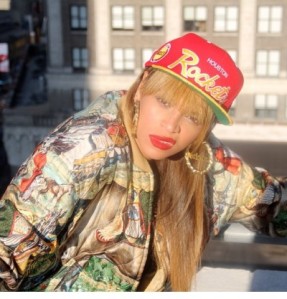
Let’s Get Ratchet! Let’sGetRatchet!
Bey’s ratchetness is about flamboyance, about doing the most, and “Bey-ing the most.”
Shawty-Lo’s brand is “ghetto” “hood” ish on steroids.
In this regard,his show is certainly poised to succeed. (And it ain’t even aired yet.)
So my initial thought to my friend on FB was: “When there’s a show about a woman and her ten baby daddies then we can have a discussion about alternate families. Until then, this just sounds like women with few options capitulating to Black male patriarchy.”
By-and-large, I believe this is true. But it is also true that I find something fundamentally off-putting about a brother with 11 kids by 10 different women, even though it appears that he supports them all, claims them all, and works to have some level of relationship with their moms. I’m tired of brothers not having to be emotionally accountable for their relational choices. I’m tired of the way patriarchy’s love affair with capitalism sets men up to think that manhood and fatherhood are tied to one’s bank account.
Patriarchy exempts men from having to emotionally grow the fuck up.
I mean, it’s great that Shawty Lo knows and claims all his children. But um, WHEN did that become the standard?!
Men don’t want superficial relationships, but they have little motivation to cultivate the habits of character—emotional generosity and maturity, selflessness, self-confidence (not EGO) – that are necessary for good relationships. Intuitively most men reject women who want them only for what they have, and rightfully so. But these same men are rarely challenged to cultivate the kind of emotional consideration that they seek in others. They want these things from women, benefit from the time we spend cultivating these attributes in our friendships with other women, but are so ill-equipped to provide them themselves.
Even still, in the crevices of my wrinkled forehead are the residues of my own respectability politics, my ambivalence about the limits of our alter(n)ations, and our excessive celebrations of alterity. Even as our generation works hard to stop clutching the pearls and with it the respectability that we think is held in tact by the thin tie that binds, we are confronted with the challenges that led our foremothers to embrace respectability in the first place. We might not be striving for big R-type Respectability, but we are all over little-R respectability.
Why?
Well, “ask me what I do and who I do it for.” For the future kids, for my mama, my grandmama, my aunties, all those people, for whom I am the embodiment of hope.
When I was growing up, watching way too many girls become mothers before they had the resources to make sustainable lives for themselves and watching my mother hustling to make ends meet, I caught the cautionary tale real quickly. Whatever you do, don’t do this.
Not justifying. More like confessing. And inviting us–respectable, supereducated brown girls, the ones who “did it the right way,” whatever the hell that is– to tell the truth about our continued investments in respectability, and about all the ways that our love for all things ratchet is as much about getting free as it is about reminding ourselves of all the reasons why we made the choices we made. So we wouldn’t end up like that. Like them.
I mean it could be good ole fashioned “Chickenhead Envy” on my part. Cuz damn. It definitely feels like “Hoes be winning.”
But are they really? Are any of us of winning in a scenario where respectable and ratchet are the only two options?
Yes, the alternate family that Shawty Lo and the Baby Moms have built may be subversive, transgressive, and even admirable in its insistence on creating meaningful kinship bonds despite the dictates of respectability. Alternate families are incredibly difficult to create and structurally discouraged at every turn. And in some ways our affective lives (our emotional selves) have not caught up to the space, time, and resource demands of this neoliberal moment.
Ratchetness emerges under these conditions as a kind of habitus through which (some) working-class folks and folks with working class roots interact with every aspect of their lives from entertainment to family to government.
(Hurricane Chris performs “Halle Berry”–one of the first songs to popularize the term “ratchet” in front of the Louisiana Legislature, watch around the 6min mark.)
More and more though, I am coming to understand that subversive and transgressive politics do not a revolution make. I mean how exactly does the subversion and transgression represented here undercut patriarchy?
Just because it’s alternate and non-normative–and thus even potentially queer– should I as a feminist embrace it?
From what I see, this radical reimagining of family works primarily to balance the public portrayals of Black men as oversexed deadbeats against the reality that “as long as he takes care of his kids,” we can’t really have anything to say, because ultimately “he ain’t that bad.”
What do we do with a man that sleeps around unprotected with all these women given the alarming rates of HIV infection in ATL? (And how many people will come to this post and remind me that the women also chose to have unprotected sex with him?!)
As I watch the mothers of Shawty Lo’s children form strategic alliances all in the name of parenting their children and getting what they need from this ONE man, I think about the continued imbalance of power that Black men have over Black women despite all the ways white capitalist supremacist patriarchy conspires to keep Black men locked into a form of subordinate masculinity.
I know that should this show become a full fledged series, everyone will focus on the Mamas, on how stupid they all were to take up with dude, who has a reputation for foolishness. Their maturity and the wisdom of their choices will surely be discussed.
His? Not so much.
As I’ve said before, reality (television) frequently makes Black women the victims of persistent acts of disrespectability.
So even as I unhand my (mother’s) pearls, I think this show among others can invite us to think about Black women’s deployment of ratchetness as part of a kind of disrespectability politics.
Or in Bey’s case, as a kind of joy and celebration, that the rush to respectability simply doesn’t allow.
Elsewhere I have written about ratchet feminism, primarily as a kind of female friendship forged in the midst of complicated relationships among men, their mothers, and their many women. I think this show will place this concept on the table again, as it demands we think about all of the creative ways women negotiate patriarchy.
At the same time, we have to think about how the embrace of ratchetness is simultaneously a dismissal of respectability, a kind of intuitive understanding of all the ways that respectability as a political project has failed Black women and continues to disallow the access that we have been taught to think it will give. #AskSusanRice
We must ask what ratchetness itself makes possible, even as the gratuitous and exploitative display of it attempts to foreclose possibility. What does ratchetness do for the ratchet and non-ratchet (and sometimes ratchet) alike?
Are Black women not always already perceived as “ratchet” anyway? As over-the-top, excessive, doing the most and achieving the least, unable to be contained, except through wholly insufficient discourses, like ghetto, and hood, and ratchet. AND respectable.
Are Black men “ratchet”? Can white women be ratchet? Is this ratchet?
- Kanye and Baby Mom (to be) Kim Kardashian
I don’t have the answers. And I’m not knocking these moms. The best I can do here is own my contradictions and then let go of these damn pearls, because despite my desire to hold on, this ain’t our mothers’ feminism.
Only Odd*: the Holiday Edition
27 Dec“Only Odd” is borrowed from tumblr-speak, as in, “I can’t even… I can only odd.” Bloggers are often expected to react to major events. And though we often comply, the energy expended for such argumentation could also be used to finish manuscripts, start novels, knit sweaters or make passionate love as if the world wasn’t crumbling under the weight of imperialism. Sometimes we can’t. And that’s ok. Here’s a list of things this holiday that made me say, “I can’t even… I can only odd.”
- Sandy Hook, Santa Clause, the NRA and the commodity of innocence. A man killed 28 people. Twenty eight. Himself. His mother. Six school employees. Twenty children. We created hierarchies of these deaths based on notions of innocence, notions exploited by various industries. “Innocent” gets at our pockets. We buy toys in pastels to protect innocence; we lie to children about a classist, red-clad man who visits them but not their friends, a man who will prepare them to believe in a God who rewards the faithful (read rich) with material things. And when faced with a right-before-the-holidays massacre of innocents, we propose buying more guns to protect innocence. All our hands drip blood.
- Django. I can’t. I really can’t. Like, I can’t even post links from people who went to see the movie. Would you like to see a movie about slavery? See Sankofa.
- Guess who’s (not) coming to dinner? I can’t with the holiday blues. For those who must explain/ defend their singleness to (sometimes) well-wishing elders who grew up in different times. For those who weren’t able to spend holidays with their chosen (read queer) families because of the biases of their kin. For those who weren’t able to spend the holidays with their kin because of their disapproval of their chosen families (read homophobia). I’ve been in 2/3 of those boxes and I can’t. Even.
- Catfish marathons over the holiday. From the introduction to the last frame, American conceptions of beauty are unquestioned and reified. Those who manipulate these conceptions to connect with (shallow) others are portrayed as desperate, deviant and ultimately pitiful. Fat hatred, homophobia and ageism are just a few of the things that go unquestioned in this show that joins the other MTV train wrecks that track on shame.
- Heretical holiday characters—like Rudolph. Rudolph stands for everything that our Lorde deplores. Rudolph was only accepted when his difference was valuable to the colonizer of his folks. If the catchy song seems benign, see The Help, Twilight, “Flipping Out” and every other movie, novel or show where the other helps others get they life their lives together.
The Summer We Got Free: A Book Talk with Mia McKenzie
20 DecThe Summer We Got Free is Mia McKenzie‘s first novel and I was honored to be asked to write a blurb for the back. I wrote:
Mia McKenzie’s The Summer We Got Free answers Toni Cade Bambara’s question “do you want to be well?” with it’s own. Do you remember what I was like when I was? The novel won’t let you go as it surges forward with truth only fiction can tell. I was eager for answers as I followed a trail of not bread crumbs but whole pieces of toast slathered in butter that makes you moan or as I did, read passages aloud and neglect sleep for want of the next savory morsel. The Summer We Got Free is the product of a girl child grown up in the stories of June, Alice, Zora, Pearl, Gloria, and even Octavia, told in palimpsestic time where McKenzie’s own life doesn’t overlap with her characters but it doesn’t even matter. Ava is the black girl who reminds us that we are the ones we’ve been waiting for, to the delight of some and the displeasure of others. McKenzie’s masterful weaving of narrative belies an inaugural effort yet it is clearly an afrofuturistic vision of healing transformation and an affirmation that we have what we need. The text is saturated with an effortless queerity and a brush of magical realism that show what’s possible when you focus off center. I’ll be thrusting this into the hands of everyone I know as I return to it myself to remember I can get free again.
This interview with Mia McKenzie of Black Girl Dangerous is the first in a series of talks Crunk Feminists will have with people we think are creating the world we want to see. We do a lot of critique on the blog but in the new year we want to do more to highlight the folks who are doing the work of fostering activism and alternatives now! CF Crunktastic describes the project as a “Crunk Digital Salon.”
I mean salon both in the sense of the kind of intellectual gatherings that Madame CJ Walker and Georgia Douglas Johnson used to preside over in their homes during the Harlem Renaissance, but also in the sense of beauty/barber shop talk and politics, and the level of community, candor, everydayness and humor that one finds in those spaces.
CF Crunkonia characterizes it as a kitchen table.
I like the kitchen table for reasons involving my love for Paule Marshall. I also miss MHP’s old blog with the same name. And although the kitchen table may not mean to our generation what it did to Marshall’s foremothers, couldn’t we play with the whole digital age meets the kitchen thing because the kitchen table may double as an office desk for many of us? A play on women’s work?
CF Chanel reminded us that a cypher invokes our initial inspiration and connections to hip hop feminism.
I’m moved by the tumblr practice of Signal Boosting, of lifting up important messages that we want spread and that we want people to hear by reblogging them and asking others to do the same.
As we continue to work out what we call this thing, please enjoy our first offering. Get Crunk!!!
A Crunk Love Offering
19 DecIn the spirit of what started as Crunksgiving, CFs Robin and Raeone come to you with the final installment of our 2012 Giving Campaign vlogs.
They discuss the influence of the blog in their lives and classrooms, and urge you to match the CF’s labor/s of love with an offering of love.
RandRGetCrunk from UA, Telecommunication and Film on Vimeo.
If the CFC has impacted you in any way over the last 2 and 3/4 years, please show your support. Every “dolla” helps/counts and will be used towards our outreach and in-reach initiatives in the new year.
Shouts out to everyone who has already generously donated to our campaign. Thank you! We appreciate you.
#rolltide
#getcrunk!
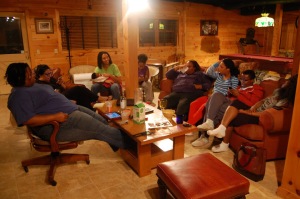
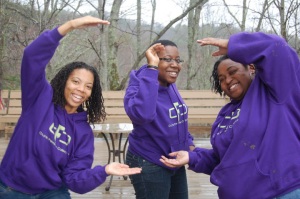
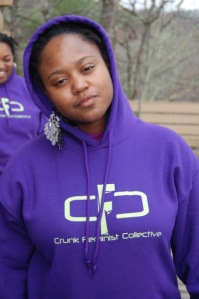
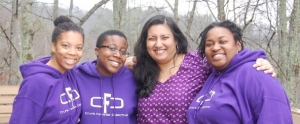
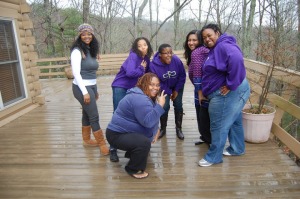
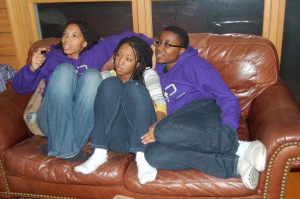
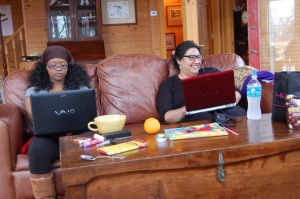
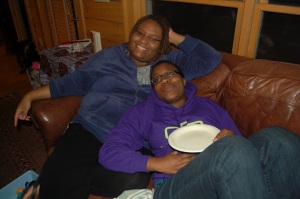
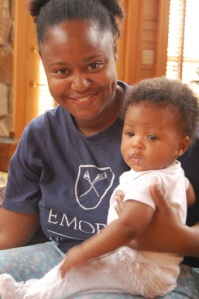
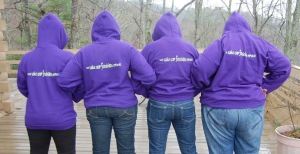
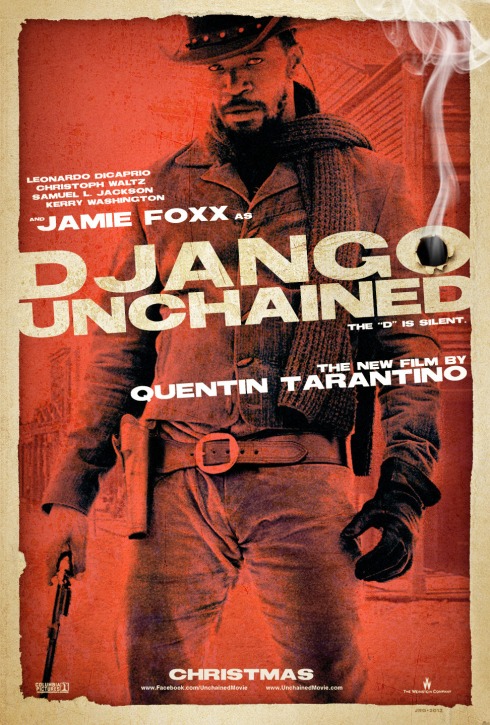
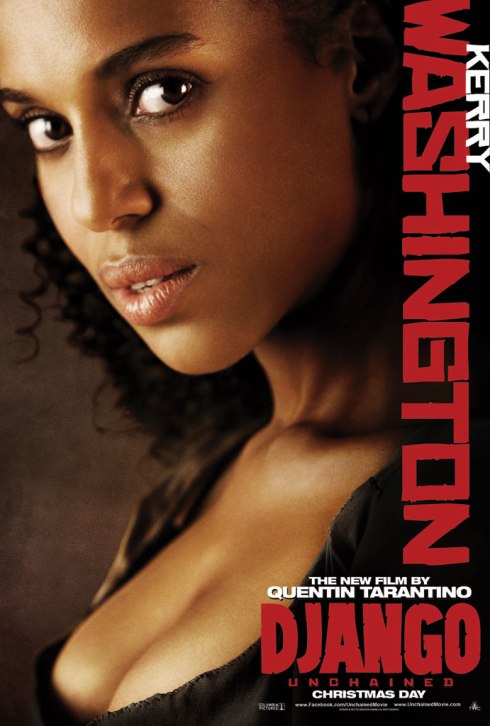
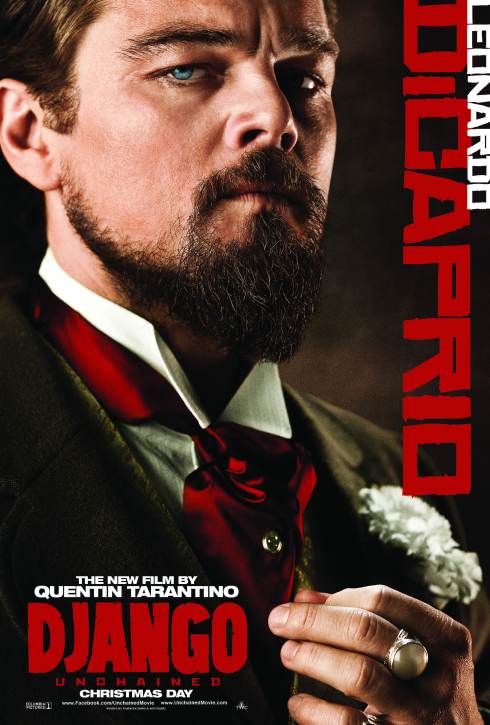
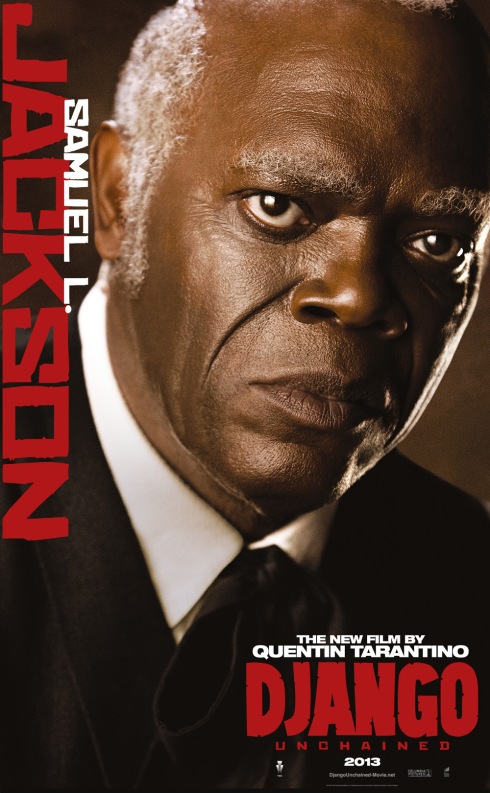
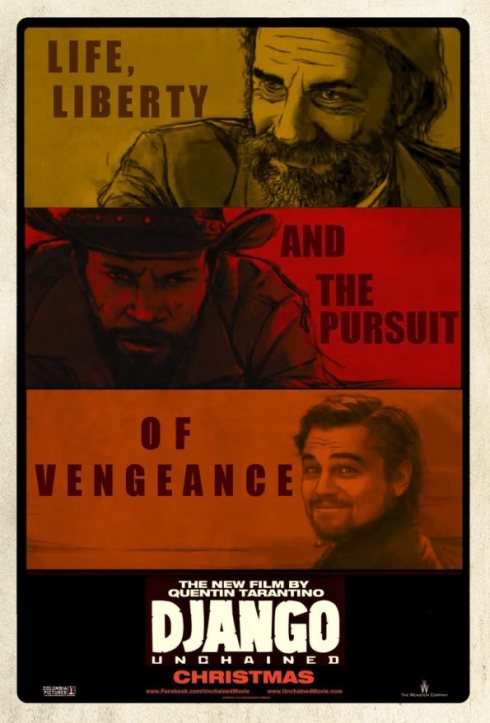

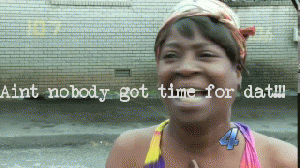
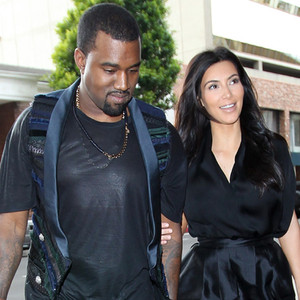

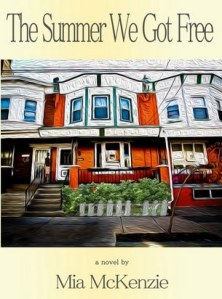


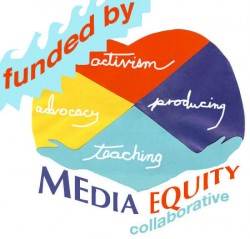

Recent Comments